Art & Exhibitions
artnet Asks: Iván Navarro
His sculptures speak to being an abducted child during the Pinochet regime.
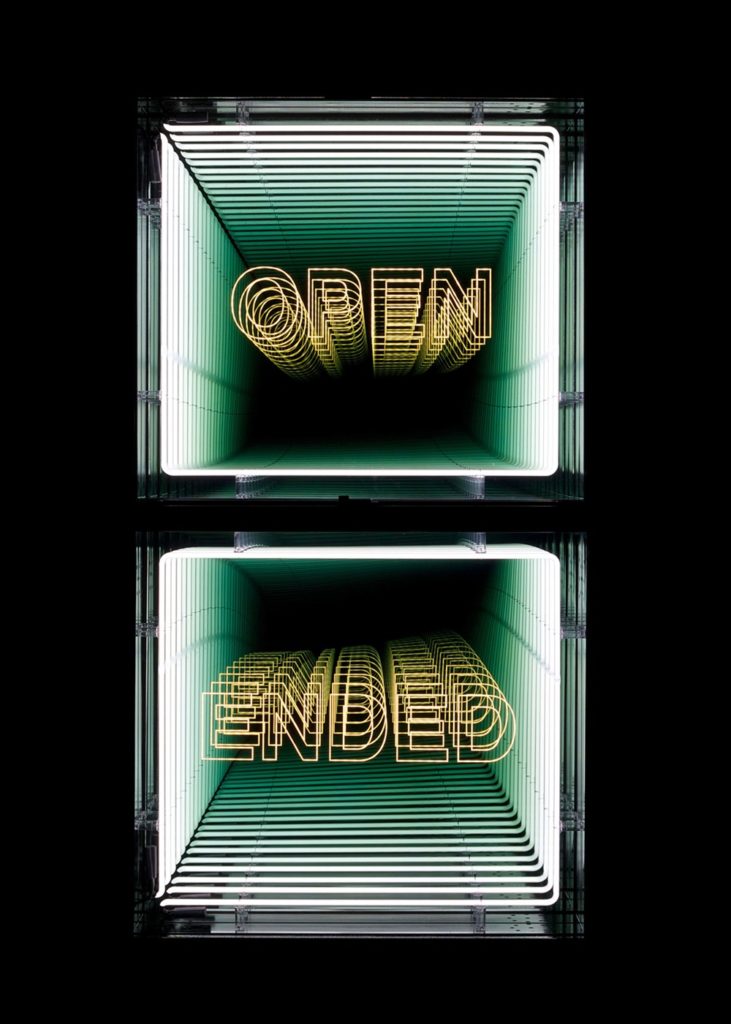
His sculptures speak to being an abducted child during the Pinochet regime.

Lorraine Rubio

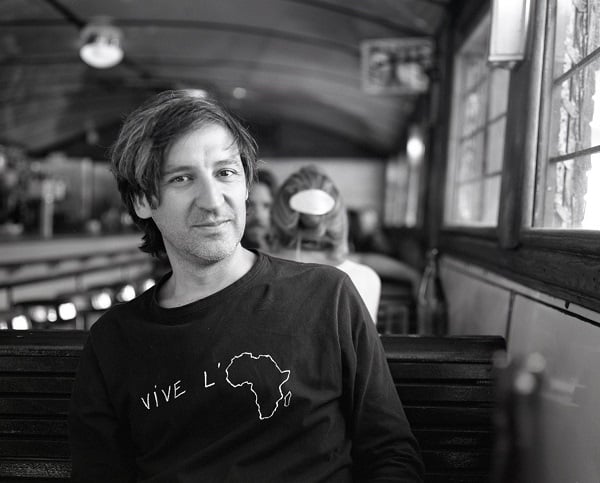
Iván Navarro
Photo courtesy of the artist and Paul Kasmin Gallery.
Iván Navarro’s neon, fluorescent, and incandescent light sculptures are often responses to the artist’s tumultuous childhood in Chile during Pinochet’s dictatorship. Navarro was one of the children abducted during the regime.
While the bright and untouchable quality of the neon rods often represent hope in the face of unrest, they speak to the dictator’s control of electricity in homes to oppress and torture citizens. Most recently, Navarro’s work has been shown in solo and group exhibitions, including “Under the Same Sun” at the Guggenheim Museum (2014), “Where is the Next War?” at Galerie Daniel Templon in Paris (2013), and “Light Show” at Hayward Gallery in London (2013). The artist’s work is held in public and private collections, including the Hirshhorn Museum in D.C., the Saatchi Collection in London, and the Martin Z. Margulies Warehouse in Miami. He currently lives and works in Brooklyn.
When did you know you wanted to be an artist?
I still don’t know if I want to be one.
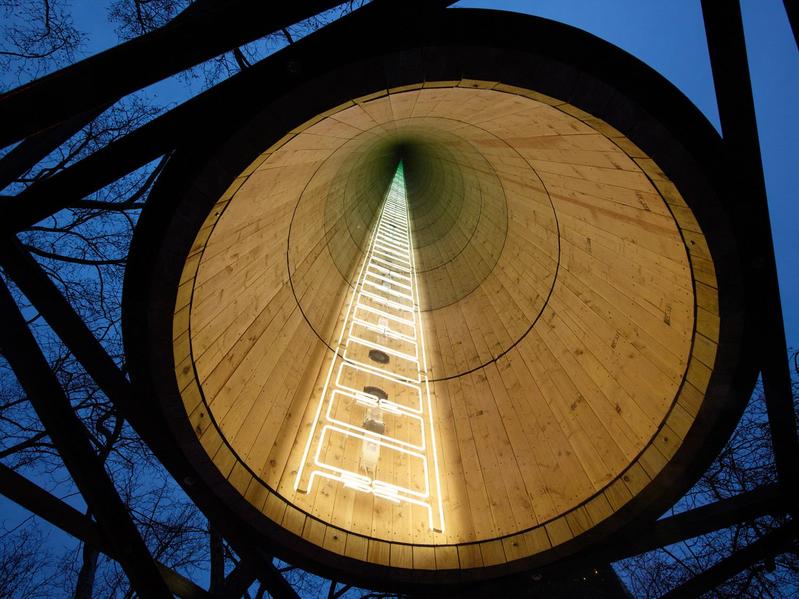
Iván Navarro, Ladder (Water Tower) (2014)
Neon, wood, painted steel, galvanized steel, aluminum, mirror, one-way mirror, and electric energy, 189 x 105 1/8 x 105 1/8 in.
Photo courtesy of Paul Kasmin Gallery.
What inspires you?
Music, or I get inspired by unusual situations, like spending time on the subway or in a park.
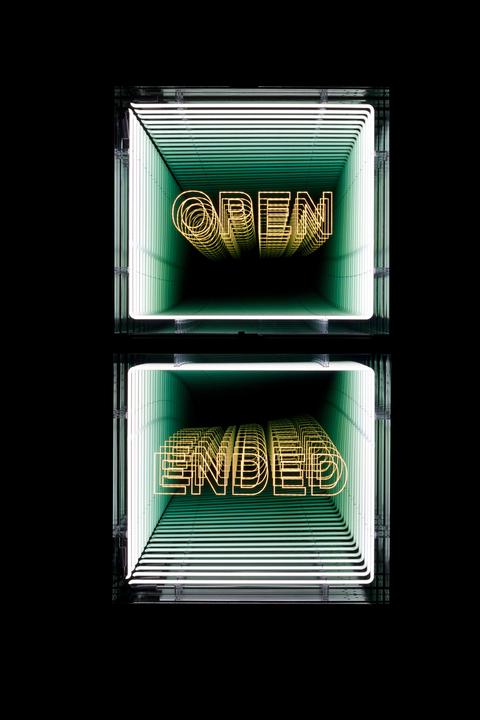
Iván Navarro, Open Ended (2014)
Neon lights, aluminum box, mirror, one-way mirror, and electric energy, 62 1/8 x 36 1/4 x 9 1/4 in.
Photo courtesy of Paul Kasmin Gallery.
If you could own any work of modern or contemporary art, what would it be?
Robert Smithson’s Spiral Jetty.
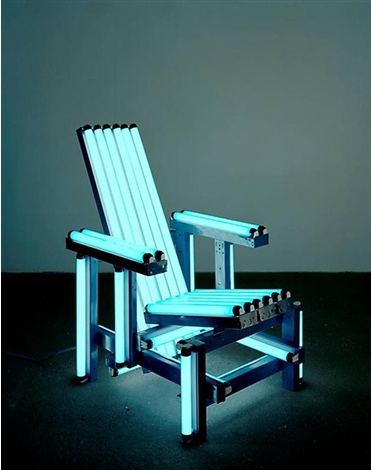
Iván Navarro, Blue Electric Chair (2004)
Metal and fluorescent tubes, 48 x 31.1 x 45.1 in.
Photo courtesy of Galerie Daniel Templon.
What are you working on at the moment?
I’ve been selected as a finalist for the International Light Art Award. I’m also producing a piece made with traffic lights.
When not making art, what do you like to do?
I run a record label, Hueso Records (hueso-records.com). It’s very interesting to collaborate with musicians. I’m did a concert on November 6 in the theater at El Museo del Barrio in New York City, with Leonino—one of the best artists from Chile.